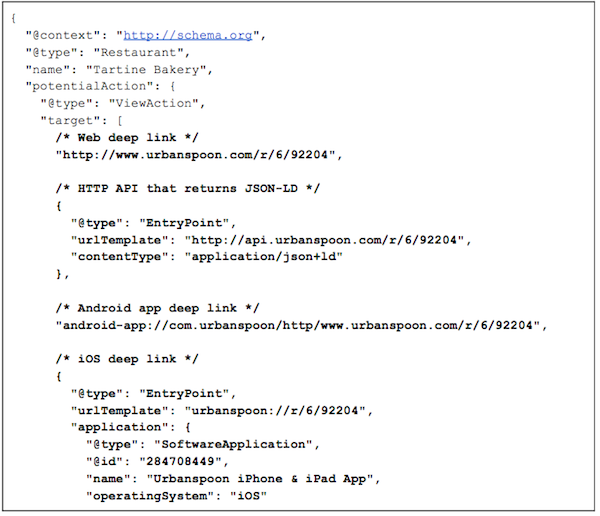An important new addition to Schema.org was announced last week. Jointly signed by representatives from Google, Microsoft, Yahoo, and Yandex, it introduces new schema that focuses on actionable items on a website.
This change is significant because the schema.org markup was always about describing things like people, organizations, and buildings. In fact, one of the top-level schemas is simply called Thing.
Now, however, schema.org is expanding to include Actions, Potential Actions, and Entry Points. According to the announcement, the new schema is for helping websites “to describe the actions they enable and how these actions can be invoked.”
How Actions Schema Works
Actions can be connected to Things. For example, for the concept of a movie, you can now have a watch action. The action of watching could have an entry point, which is an application like YouTube or Netflix.
Entry points are URLs, by nature. But they can be modified to include external applications. This can be extended past creative works, too. The W3 proposed document suggests a restaurant can be “viewed” using an API call or via an app. Therefore, you can specify multiple targets for your actions.

For a long time, Microsoft has been trying to tell the public that “Bing is for doing.” By adding schema markup to better semantically understand actions, Google, Yahoo, and Yandex are also saying they want to know what you’re doing and they want to help you perform actions.
The final Actions overview document details the changes to the Action schema directly from the collaborative minds at the World Wide Web Consortium.
Will You Use It?
We already have semantic data describing people, workplaces, authors, and so much more scattered across the Internet. Through this markup, search engines and other Web properties are able to understand connections between various entities. Some have said this is too much knowledge.
Is adding actions into the mix ultimately good or bad? Will you start marking up your site’s actions?
